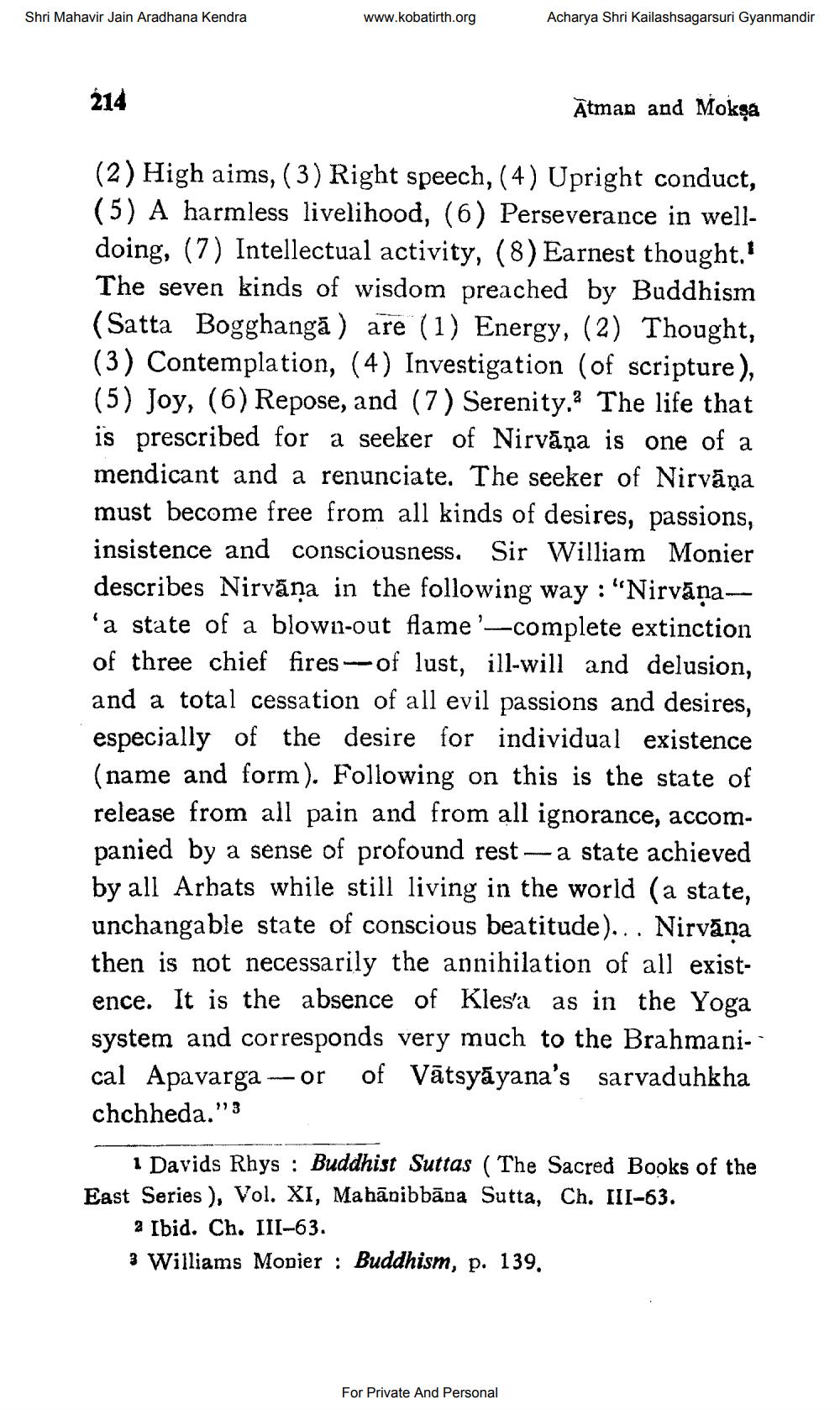________________
Shri Mahavir Jain Aradhana Kendra
www.kobatirth.org
Acharya Shri Kailashsagarsuri Gyanmandir
214
Ātman and Moksa
(2) High aims, (3) Right speech, (4) Upright conduct, (5) A harmless livelihood, (6) Perseverance in welldoing, (7) Intellectual activity, (8) Earnest thought." The seven kinds of wisdom preached by Buddhism (Satta Bogghangā) are (1) Energy, (2) Thought, (3) Contemplation, (4) Investigation (of scripture), (5) Joy, (6) Repose, and (7) Serenity. The life that is prescribed for a seeker of Nirvāṇa is one of a mendicant and a renunciate. The seeker of Nirvāņa must become free from all kinds of desires, passions, insistence and consciousness. Sir William Monier describes Nirvāṇa in the following way : "Nirvāņa'a state of a blown-out flame'-complete extinction of three chief fires ---of lust, ill-will and delusion, and a total cessation of all evil passions and desires, especially of the desire for individual existence (name and form). Following on this is the state of release from all pain and from all ignorance, accompanied by a sense of profound rest — a state achieved by all Arhats while still living in the world (a state, unchangable state of conscious beatitude)... Nirvāna then is not necessarily the annihilation of all existence. It is the absence of Kles'a as in the Yoga system and corresponds very much to the Brahmanical Apavarga --or of Vātsyāyana's sarvaduhkha chchheda."3
1 Davids Rhys : Buddhist Suttas ( The Sacred Books of the East Series ), Vol. XI, Mahāpibbāna Sutta, Ch. III-63.
a Ibid. Ch. III-63. 3 Williams Mopier : Buddhism, p. 139.
For Private And Personal




